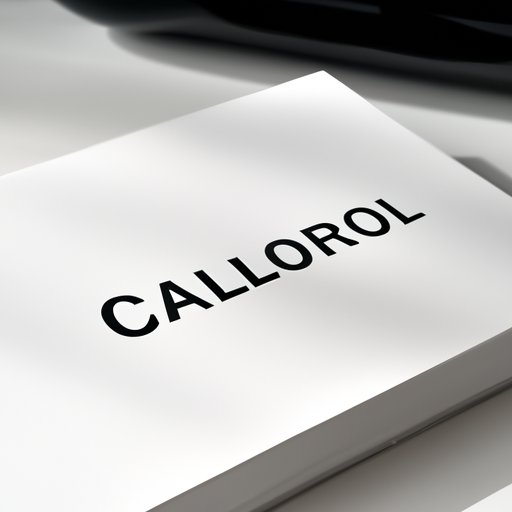
Introduction
Are you trying to lose weight? Do you enjoy a glass of wine or beer with dinner? If so, you may be surprised to learn that alcohol can significantly sabotage your weight loss efforts. In this article, we will explore the relationship between alcohol and weight loss, provide tips for minimizing its impact, and share personal stories of successful weight loss while still enjoying a drink. This article is for anyone looking to lose weight and wondering how alcohol may be hindering their progress.
The Surprising Ways Alcohol Can Sabotage Your Weight Loss Goals
It’s no secret that overconsumption of alcohol can lead to weight gain, especially around the abdomen. But did you know that even moderate drinking can contribute to weight gain and slow down weight loss efforts?
One reason for this is that alcohol is metabolized differently than other nutrients like carbohydrates and protein. When you consume alcohol, your body prioritizes metabolizing it over burning fat since alcohol is considered a toxin. This means that fat burning is paused until your body has finished processing the alcohol.
Alcohol can also lead to poor dietary choices and lack of motivation to exercise. After a night of drinking, you may be more likely to reach for high calorie, fatty foods. Plus, alcohol can impact your sleep quality, leading to decreased energy levels and lower motivation to work out.
Exploring the Science of Alcohol and Weight Loss: What the Research Shows
There have been numerous studies investigating the relationship between alcohol and weight loss. One review of 45 studies found that alcohol consumption can contribute to weight gain, especially in middle-aged women. Another study found that men who drink heavily are more likely to have abdominal fat, which is linked to chronic diseases like heart disease and diabetes.
There is also evidence that drinking alcohol before or during a meal can lead to increased calorie intake. A study published in the American Journal of Clinical Nutrition found that alcohol consumption before a meal increased calorie intake by 20% in women.
On the other hand, some studies have suggested that moderate alcohol consumption may not be harmful to weight loss efforts. One study found that women who drank moderate amounts of alcohol (up to one drink per day) gained less weight over time than women who didn’t drink.
Tips for Incorporating Alcohol into Your Weight Loss Plan
While it’s true that cutting out alcohol altogether may be the best option for weight loss, we understand that many people enjoy a drink now and then. Here are some tips for incorporating alcohol into your weight loss plan:
1. Choose lower calorie drinks: Opt for beer, wine, or spirits with lower calorie counts. Light beers, white wine, and spirits with low calorie mixers (like soda water and fresh citrus juices) are good options.
2. Avoid high calorie mixers: Many cocktails and mixed drinks contain high calorie mixers like soda or tonic water. Stick to low calorie mixers or simply drink your alcohol straight or on the rocks.
3. Set limits: Set a limit on the amount of alcohol you will consume in a given day or week. Stick to your limit and avoid drinking more than planned.
The Role of Mindfulness in Alcohol and Weight Loss
Mindfulness is the practice of being present and fully engaged in the current moment. When it comes to drinking alcohol, mindfulness can play a role in making better decisions and avoiding overconsumption.
When drinking, take time to savor each sip and fully appreciate the taste. This can help you slow down and avoid drinking too quickly. Also, pay attention to how the alcohol makes you feel. If you start feeling buzzed or tipsy, slow down or stop drinking altogether.
Incorporating mindfulness practices like deep breathing or meditation into your daily routine can also help with weight loss efforts. These practices can reduce stress and anxiety, which can lead to overeating or poor dietary choices.
Personal Stories of Weight Loss and Alcohol: What Worked for Me
Here are some personal stories from individuals who have successfully lost weight while still enjoying alcohol:
“I decided to limit my alcohol intake to one day a week. On that day, I allow myself to have a couple of drinks, but only if I’ve stuck to my diet and exercise routine throughout the week. This system motivates me to stay on track, and I still get to enjoy a drink with friends.” – Sarah
“I found that switching from beer to light beer made a huge difference. I was able to cut out hundreds of calories per week without sacrificing my favorite drink.” – Alex
“I started practicing mindfulness when drinking. Instead of mindlessly sipping my drink, I would take the time to fully savor each sip and really appreciate the taste. This slowed down my drinking and helped me avoid overconsumption.” – Jen
Conclusion
While alcohol can certainly hinder weight loss efforts, it doesn’t have to be eliminated altogether. By choosing lower calorie drinks, setting limits, and practicing mindfulness, you can incorporate alcohol into your weight loss plan while still reaching your goals. Remember, moderation is key. Cheers to a healthier, happier you.




